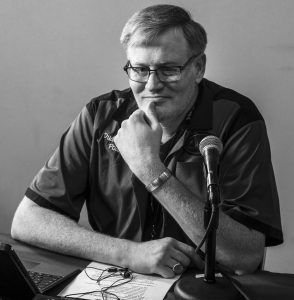As a musician there can be some hard decisions to make as far as gear is concerned. Guitar brands and styles, amplifier sizes and types and as far as effects go analogue or digital and true bypass or buffered. When it comes to the world of pedals and effects I’m not sure I have heard as many debates as I have about the later. True Bypass vs. Buffers has been a point of debate since…well since forever. As with most things involved with tone and sound it’s a case of how much butter to put on the toast a little or a lot. It all comes down to personal taste and listening pleasure. However there are a few considerations to make when spending your money. It all really comes down to some pretty basic points
True bypass:
True bypass means that when the pedal is off, with no processing or colouring going on, the signal from your guitar passes through all clean via a separate path outside the circuit.
This means that a true bypass pedal in itself won’t alter your tone but the fact that it doesn’t do anything to drive the signal (when it’s off) through long cables and to the amp, will cause tone loss and alteration. You will recognize this by a noticeable high end roll off and generally a less open and dynamic tone and picking response.
Buffers:
A buffer is basically a small pre-amp that will electronically strengthen or enhance the weak high impedance signal from your guitar and help driving it through long signal paths. The buffer is active regardless whether the pedal is on or off.
Contrary to what many believe – and will claim – a buffer will not alter or colour your tone but rather restore the original signal of your pickups. You will notice this by a more pronounced high end and a generally more dynamic and responsive signal.
There is a third option, the bad one. Hardwire bypass, employed by MXR among others, means that the signal is fed through the pedal’s circuit even when the pedal is off. Contrary to both true bypass and buffering, hardwire will affect your tone and cause considerable high end roll off and a generally less dynamic tone. We don’t want that, so let’s concentrate on the two other options.
What’s the difference?
The question is: do you really need to buffer the signal? Some guitarists prefer, and even depend on, the high end roll off you get from an un-buffered signal to achieve their magical tones.
The point is though: you should be aware of the consequences of not buffering your signal. The reason is that other problems, like noise and dull sounding pickups and pedals, may occur as a result of a non-buffered signal.
A buffer can either be a buffered pedal, like Boss, or a dedicated buffer unit or pedal. A Boss tuner or compressor first in the chain or a delay last, will do the job but the quality of the buffers used in pedals are of varying quality, so I strongly recommend a single buffer. Again, keep in mind that one buffer is enough to drive the signal, so a huge collection of Boss pedals, or other buffers, doesn’t make any difference.
For those who don’t want to spend the money on all of the boutique pedals that feature true bypass, but want to use your buffered pedals like boss and others there is always to option of a bypass looper that basically is an external unit you plug your pedals into that makes your signal chain true bypass…this is an option being used by many modern players.
Well, there you have a basic rundown of the types of switching available to your signal path. There are tons of details that could be gone into such as the length of cables in the rig, the number of connection points and even the types of pickups being used. But with this basic information you can be well on your way to making a few more decisions on your way to achieving epic tone.
~Christopher Jordan has been a live audio/video engineer and recording artist for over 15 years and owns AustinHotMods.com an Austin,TX based pedal modification and repair company.~
Have a comment, technical question or an article suggestion? Visit our contact page on AustinHotMods.com and let us know.




